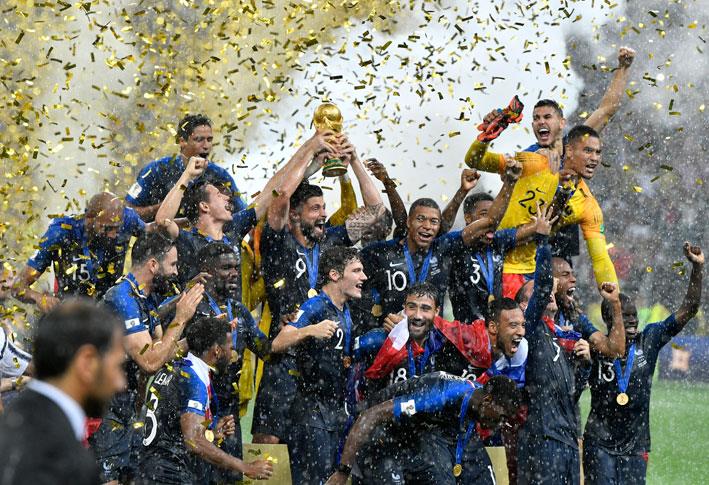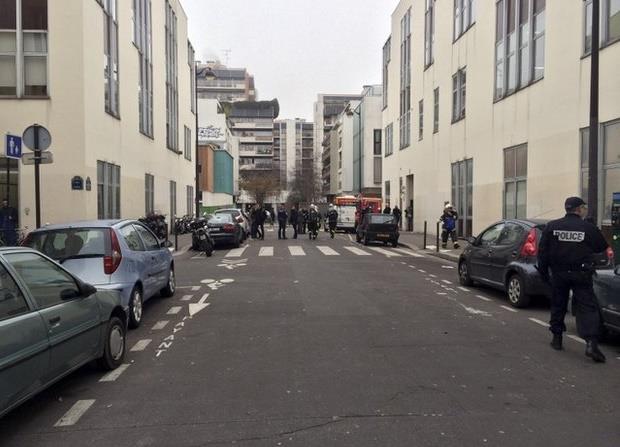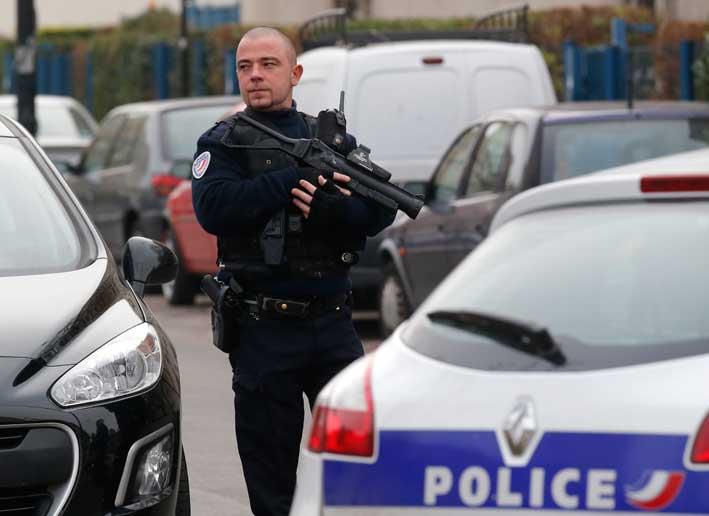In 1998, Didier Deschamps captained France to World Cup triumph. Now, 20 years later, he has led the country as a coach to another World triumph, prompting celebrations across France. How much does this footballing victory mean for France and its people?
First of all I think we have to give back this victory to the players. I think the French feel that those who won are those 23 young players, they’re young, they’re happy, they’re super cool and the victory is first and foremost about 23 guys who really worked hard to get where they are on top of the world and win the hearts of the French. The main thing is to have those young, cool people, role models, in France and in the rest of the world that have won the hearts of other young boys and girls, because we have the other world cup starting very soon, that’s really the big victory. The positive is really seeing those 23 young people really enjoying themselves. I’m not naive – it’s still football, it’s a game to be enjoyed and the feeling they gave is one of having fun together, being a real team and seeing that on top of the world you have this kind of positive spirit, I think that’s what makes the French so happy.

You’ve said that football is just a game. In many senses though, France’s footballing history has been tightly linked to the country’s identity. The diversity of the French squad has either been used as a symbol of integration at work, or as a symbol of the grand replacement of ethnically French citizens. Out of the 23 player squad that won the World Cup 15 of them are of African descent. What does this team and its conquest of world football mean for integration?
First of all, about their identity and where they are from; you would have to ask them. I think the message is that they are 23 French players playing for France; that’s their choice, that’s how they chose to represent themselves. Benjamin Mendy settled all these questions by sending a tweet which removed the flags of origins of each player and replaced it each time with a French flag. If somebody wants to bring something about immigration, integration, religion I think it’s up to the players to do that, and up to now the players have said we are young, we’re happy, we’re French and let’s have fun; and I think that is the message.
Now there is a bigger message of course on diversity which is positive. I loved President Obama’s address in Kenya a few days ago; he said “have you seen those young French players they just won the world cup, they don’t look like Gauls to me, but they are French and they play together”. With that he didn’t mean to suggest how nationalism is important; but it was just the idea that wherever we come from, at one point we decide to be together and to be positive. So on what their own personal adventure means, I think we have to let each player tell his story and I don’t want to give interpretations.

What needs to be done to improve the current situation vis-a-vis immigration?
France is a very diverse country, and that is seen in our country as a positive. Migration has always been present both in and out, but nowadays we think more about migration because we have a migration crisis in Europe; it’s useless for me and you to try and deny it. I think however we must keep in mind the big perspective. Yes, we have difficulties at the moment with countries and politicians speaking of the arrival of migrants and what’s happening in the Mediterranean in a very negative way, but it’s very important that in our public discourse we say that migration has many positive aspects. We’ve all been migrants at one point.
I don’t want to make people guilty, but there are always solutions to find with migrant movements, and what I like is seeing the good Europe trying to find solutions. A boat is arriving here, Malta says that they cannot take care of all the migrants and other countries chip in; everyone working in solidarity with each other. We totally understand that sometimes the population feels that there is a cultural issue, and the Europe that we like is not going to ignore this. Frankly, there might be economic migrants crossing the Mediterranean, but I don’t really care whether the mother of the child who died recently in the Mediterranean was an economic migrant or an asylum seeker; we cannot have children dying in the middle of the Mediterranean. I think we can all agree on that.
Malta, France and a number of other countries have decided to stay positive, find solutions and show citizens that they are listening. We will address this migration issue by repeating what we said in Brussels during the council; that we must find development solutions in Africa, in countries like Mali and Niger, and we must also be more be more shared in our responsibilities in Europe.
I always avoid the formula of burden sharing; share the responsibilities, these are human beings so we must treat them as such. However we must address the issue; migration and integration is for all of us to address seriously and its good to see some success stories like the World Cup to stay positive. There’s a very interesting event Malta is organising, in New York, on public speech on migration and I think we’ve got it right because that’s really an issue. For instance, most of the time people don’t understand what an asylum seeker is, they don’t understand that some of those people are being persecuted at home. We also have cases of migrants who are arriving legally because they are finding jobs and I think we have a total mix-up here.
Let’s be very precise in the speech, let’s show some success stories and then let’s say that we have to help the development of Africa. This is not a win-lose situation, it is also in our interest economically. When Malta produces something it has to sell it to somebody so it’s a win-win if we have development in Africa. The population will stay in Africa but also for us it will help out economic growth; so think positive, but let’s address the issues. The Lifeline case proved that when countries sit around the table and decide that they have to find a solution, it works.

How important are immigrants for Europe?
Again let’s be very precise. First of all we have obligations. In the case of asylum seekers, we cannot stress enough to our own citizens how important it has been in our own history when we were the people who needed asylum and protection. Asylum seekers are people who are persecuted, tortured, who risk their lives – for asylum seekers there is an obligation for all the countries who signed the refugee convention to assist them. It’s a matter of the values of Europe; you protect those who could be persecuted and tortured so in their case, it’s not even a question – it’s an obligation that we are embracing.
Then, you always have in a country at one point, certain sectors of the economy who need the migrants to work, normally in the fields that the locals are not interested in anymore. By the way, very often it is also movement within Europe, and Europe has proposed because of this movement of workers. Mobility has always been good for growth. So we basically accept it in Europe – basically because it is not in the case of all countries, and it was an issue that was raised in Brexit for instance. It happens sometimes that the population of a country feels that they are not needed for jobs or that culturally it is complicated and that’s when you need to have a dialogue to try to find other solutions.
Frankly however, the solution is not about building walls. The solution is making sure that these people, if we think that they are not going to find a job and a home in our countries, they find a job and a home in their own country. What is the use of making poor countries even poorer? How can that be in the advantage of us European countries? There is a win-win. Their prosperity, the better development of Africa, is good for us. It’s not simply money being thrown away. Again though, there are situations which are humanitarian where we must make sure that we do not lose the humanity in us. I’m not trying to be naive and romantic but I think, like domestically in rule of law we want to protect the innocent, when we try to find solutions to the migrant crisis we must always bear in mind that we cannot let anybody drown in the Mediterranean, or die elsewhere.

In recent times we have seen attacks on the press in both France, through the Charlie Hebdo shooting, and in Malta, through the assassination of Daphne Caruana Galizia. Considering this, and also considering the anti-establishment and anti-media campaigns that figures such as Matteo Salvini in Italy and Donald Trump in America are running, would you think that the media is under attack for attempting to provide the truth?
On these recent events, people may say “oh but it was one assassination in Slovakia” or “one assassination in Malta” or “one terrorist attack in France” – but our reaction in Europe was very strong. It must be very strong because this is Europe, and we have built this European Union not only on trade, but as a community of values with rule of law at the centre. The EU Commissioner for Justice Vera Jurova, was crystal clear when she came to Malta; “attacks on journalists in Europe – not to be tolerated”.
Now, is other media under attack? There is a very difficult situation now with fake news, and France is very attached to having the EU legislate on that because we mustn’t get to a point where everybody can say “this is fake news” and so we can close down media sites; you must have a very clear distinction between freedom of expression and fake news that is really organised to undermine democracy itself.
The debate is wider than Europe of course as you mentioned, and there are reporters in OSCE on media freedom who are following this with a lot of attention, so I wouldn’t say that generally the press freedom in Europe is under attack. I would say that it’s so important for us that we must react very strongly to any attack and any threat on freedom of the press.
Then worldwide, yes the situation is even worse. There is a tendency to blame the media for everything and we have very important NGOs like Reporters without Borders, BEN, Article 19, which are very strongly warning us about this. But again, in conclusion the assassinations of journalists in Europe recently was a shock to all of us Europeans who believe that one of the fundamental pillars of the EU is this sharing of rule of law ideals.
In France, the JeSuisCharlie was very strong; not because people were particularly reading Charlie Hebdo or not, not because they agreed with what Charlie Hebdo was writing; sometimes you have different opinions, but there was a red line; you don’t kill journalists for what they are writing, and that is why you had JeSuisCharlie movement being so clear.

Since France has been one of the most affected by terrorist attacks, has this affected tourism to France? How is the country dealing with this threat? In lieu of this situation, should the Schengen Agreement be suspended at least for now?
Of course you are speaking to the ambassador of the country which is ranked as the most popular tourist destination in the world. It’s interesting the resilience of our people in the face of such situations. We’ve gone back to 87 million tourists in France, aiming at 100 million by 2020, so in answer to your question; no tourism has not been affected and we are trying to have secure but simplified procedures for tourists coming to France. In spite of the terrorist attacks, we’ve managed to organise a European Football championship in France and many other events, so we were faced with a new situation and as I said, we don’t put walls. Yes it’s true we must make people feel secure so maybe there will be a little bit more visual security than you used to have, but with all this we’ve still managed to go back to increasing – it’s the small things that give peace of mind – but again; no walls.
Over the past few years especially, the European Union has faced a number of challenges; challenges like mass-immigration and the rise of a euro-sceptic movement in a lot of countries. How does the European Union have to develop to remain the strong, and more importantly, unified body that it is and always set out to be?
Address the issues. We are faced with a movement which when they see a problem, they are going to use it to criticise the EU and of course they don’t have any interest in finding solutions. We are not going to fall into this game. We know it is useless just to criticise; we know we have to find a solution. This is why when we speak about migration; the true leaders of Europe are those who sit around a table. Maybe the first compromise will be a weak one; but the second one will be the best compromise and there you find a solution to address the issue. Also, you shouldn’t ignore your citizens when they have a question and when they have criticism; you discuss it with them. We French have a determination to keep talking to all the governments even where there is euro-scepticism; keep cooperating, keep talking. We are very determined; President Macron has been elected on a European program, so it is possible, I think that’s really the message of the present French government. Yes, there was euro-scepticism in France. Maybe it was the fault of political leaders who blame everything on Brussels. You have unemployment? “It’s Brussels’ fault”. You have security issues? “It’s the commission’s fault”. You’ve got to be very careful with this kind of attitude. We’re all working together to find a solution and it’s very easy to say “it’s Brussels fault”. We have to be very careful with the way political leaders speak about Europe; we must admit that there are problems, but also say that we are trying to find a solution. Now what we need is for all the young people who have benefitted from Erasmus, free roaming and all the successes of Europe to be the EU leaders of tomorrow.